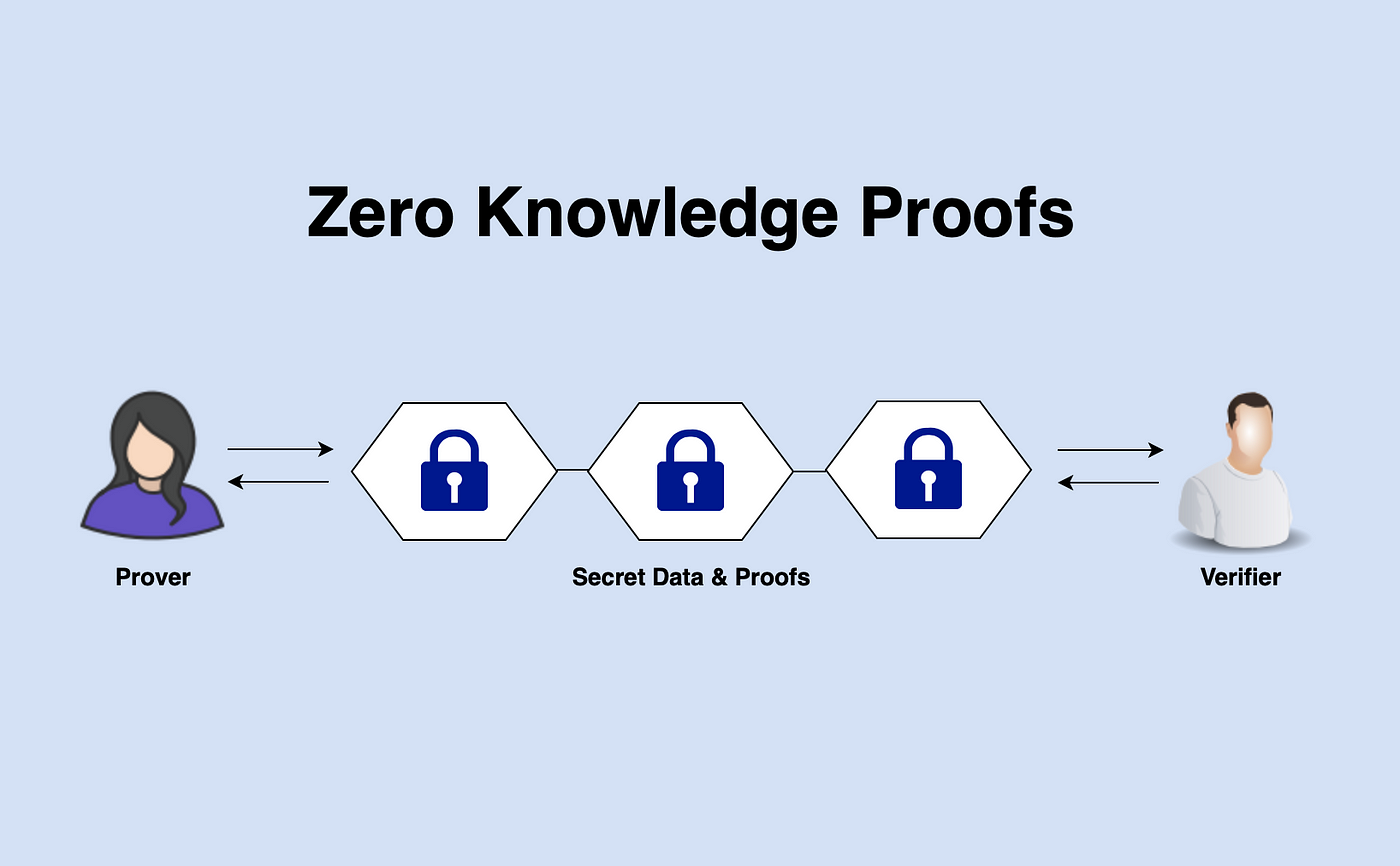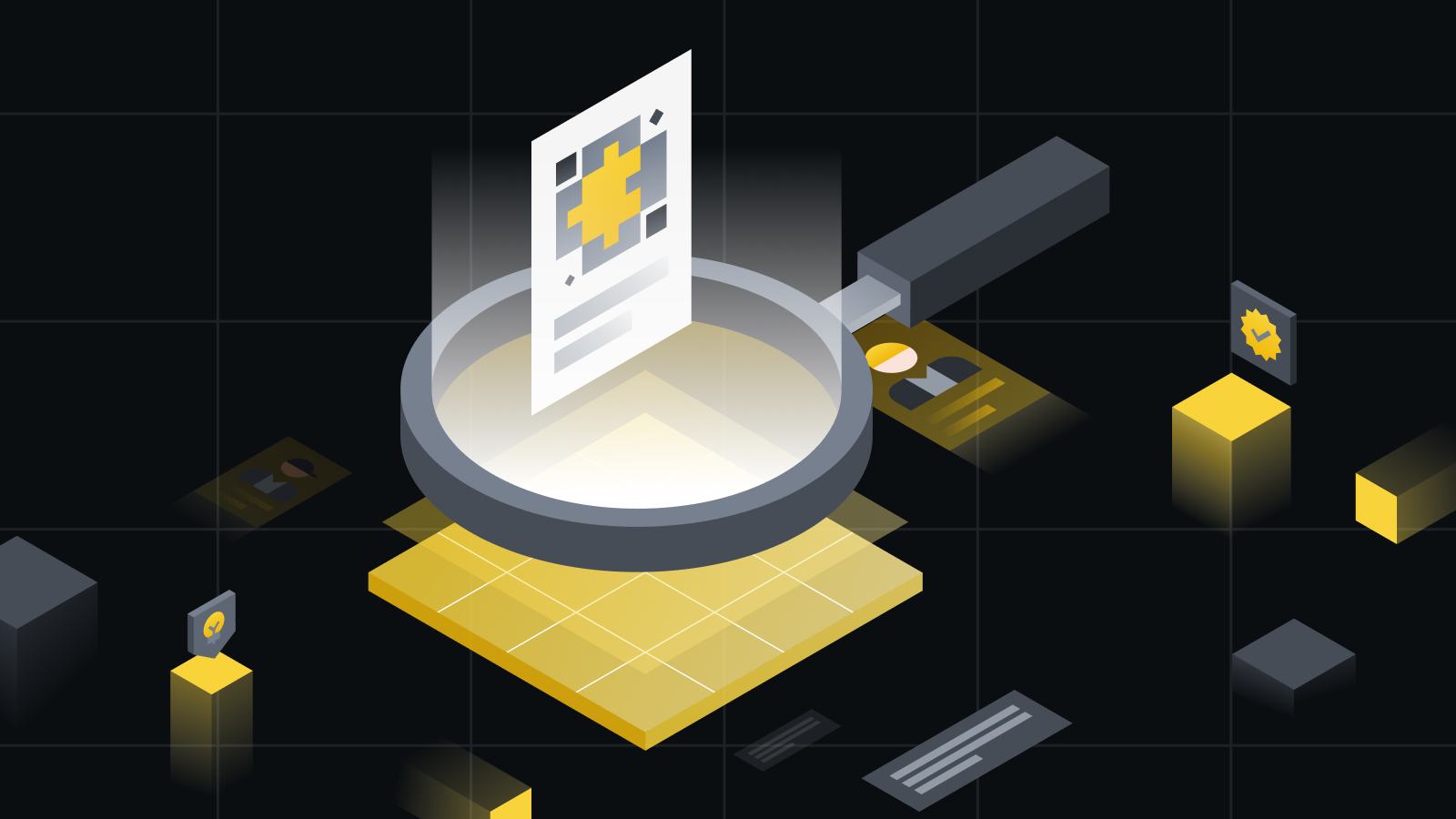Zero knowledge proof (ZKP) is referred to as cryptographic protocols that lets one party (the prover) to convince another party (the verifier) that a certain statement is valid without revealing any information about the statement itself.
This concept was presented in 1985 by Shafi Goldwasser, Silvio Micali, and Charles Rackoff. The logic behind this protocol is that the prover demonstrates knowledge of a particular piece of information without releasing the information itself.
It is like how you may want to prove you’re from a particular state without having to show any specific document or means of identification.
ZKPs presents an innovative method that permits the verification of sensitive information without disclosing the information itself. These cryptographic protocols offer a sophisticated and pioneering resolution to true data privacy.
With the introduction of ZKPs, you can securely convince someone that you know a secret or that a statement is accurate without having to disclose the secret itself or any other information aside the plain fact that the statement is true.
Major characteristics of a zero-knowledge proof includes
- Completeness: If a statement is valid, an honest verifier will be convinced by an honest prover.
- Soundness: Say the statement is false, no cheating prover can convince an honest verifier that it is true, excluding some with tremendously small margin of probability.
- Zero knowledge property: The verifier acquires nothing about the definite information being proven apart from the fact that the statement is either true or false.
In this simple form, a zero-knowledge proof consists of three elements: Witness, challenge, and response.
The first ground-breaking protocol, created in the 1980s, required several rounds of interaction between the prover and verifier. However, newer proofs need only a single round of communication, making them more efficient. These non-interactive proofs function by depending on mutual reference strings – public parameters which the prover and verifier decide to use.
Types of ZKPs that exist:
1. ZK-SNARKs
This is an acronym that represents Zero-Knowledge Succinct Non-Interactive Argument of Knowledge.
2. ZK-STARKs
This stands for Zero-knowledge Scalable Transparent Argument of Knowledge.
How does zero-knowledge proof (ZKP) work?
ZKPs works by permitting one party, (the prover) to persuade another party, (the verifier) that they have a particular knowledge or information without revealing the exact content of that information. This process comprises of a series of interactive or non-interactive steps, depending on the type of zero-knowledge proof.
For this to work, Zero-knowledge protocols depend on algorithms that take some data as input and return ‘true’ or ‘false’ as output. These techniques used in achieving the ZKP often comprises of mathematical functions that are simple to compute in one course but computationally difficult to reverse.
Why zero-knowledge proofs are important
ZKPs represent a revolutionary concept that allows one party to confirm the truth of a statement to another party without giving up any specific information. This protocol has enabled the creation of so many pioneering applications that its existence would have been impossible otherwise. Below are some examples of its use cases:
1. Anonymous blockchain transactions
Credit card payments are often visible to multiple parties, including the payments provider, banks, and other involved parties. Although this is beneficial as it helps track illegal actions, it also ignores the privacy of the people.
The primary purpose of cryptocurrencies is to provide users with platforms where they can conduct private, P2P transactions. However, this is not often the case as most cryptocurrency transactions are openly noticeable on public chains.
There are certain “privacy coins” designed for entirely anonymous transactions. Blockchains that are focused on guaranteeing privacy during transactions such as Zcash and Monero, safeguard transaction data, as well as sender/receiver addresses, asset type, quality, and the transaction timeline.
ZKPs are also been implemented in anonymizing transactions on public blockchains as well. Example is Tornado Cash, a decentralized, non-custodial service that permits users to carry out private transactions on Ethereum.
2. Decentralized identity (Identity protection)
ZKPs can be leveraged to authenticate oneself online and validate claims about your identity without disclosing sensitive and private details like your national identity number, social security number or tax ID.
3. Authentication
Most online services require users to provide certain sensitive personal details in order to complete a transaction or gain access to a platform. With ZKPs however, the authentication for both platforms and users are simplified. As soon as a ZKP has been produced by means of public inputs, (example data confirming the user’s membership of the platform) and private inputs, (example the user’s details), the user can simply submit it to authenticate their identity when they require access to the services.
3. Secure multi-party computation:
Zero-knowledge proofs allow diverse entities to mutually compute functions using private data without any one among them revealing their data to others. This makes room for new models of data analysis that preserves privacy.
4. True electronic voting
In other to guarantee transparency and foster fairness, voting schemes can apply ZKPs to ensure that votes are checked correctly while making sure the privacy of individual votes are preserved. This also makes buying and selling of votes difficult.
Zero-knowledge proofs applications (ZK-rollups)
These are a layer-2 scaling solution for blockchains, especially Ethereum. Their aim is to tackle scalability issues by moving most transaction processing off the main blockchain while maintaining a high level of security by applying zero-knowledge proofs.
Here are some of the reasons why zero-knowledge proofs are valuable in this field of application:
1. Validation without revealing data
ZKPs allow the soundness of transactions to be confirmed without revealing any of the actual transaction data. This offers privacy and lessens the amount of data that needs to be posted to Ethereum.
2. Succinct proofs
ZK proofs are very small in magnitude compared to the transactions they signify, which is likely since they do not have to truly cover all the data they are proving. This compression allows thousands of transactions to be hustled into a proof just a few hundred bytes large.
3. Easy verification
Although creating proofs is computationally expensive, the linear algebra used in ZKPs allows their simple and efficient verification. The validity of thousands of transactions can be established with the least number of computational resources.
4. Trustlessness
ZKPs are trustless and don’t need participants to posses any secret data. This boosts the systems security and makes it highly decentralized compared to substitutes depending on trusted setups.
5. Flexibility
Zero-knowledge proofs are flexible and configurable, capable of validating numerous types of computations beyond simple payments. This adaptability positions zk-rollups to scale a various array of decentralized applications in the future.
It is crucial to note that ZK-rollups are just one of several layer-2 scaling solutions, and their efficiency rely on factors such as acceptance, incorporation, and current developments within the blockchain ecosystem.
In essence, zero-knowledge proofs represent a groundbreaking development, allowing the validation of statements with robust privacy assurances. As cryptographic and software advancements grow, we anticipate witnessing the rise of new applications steaming from this profound concept, empowering users even further.











